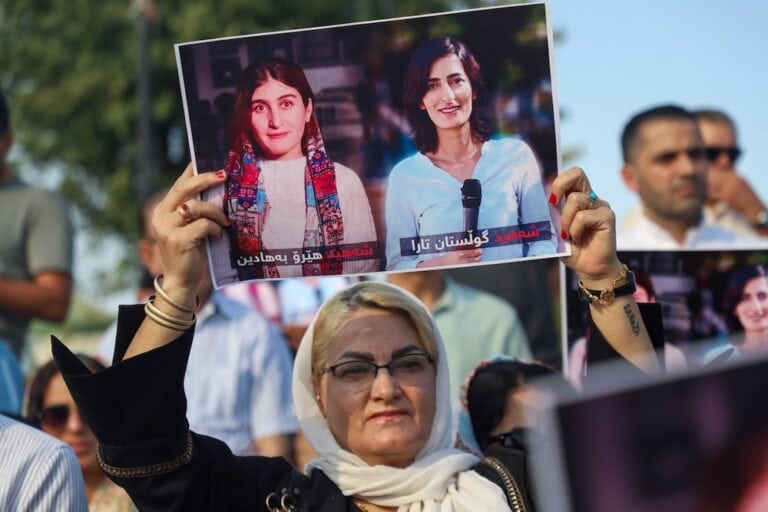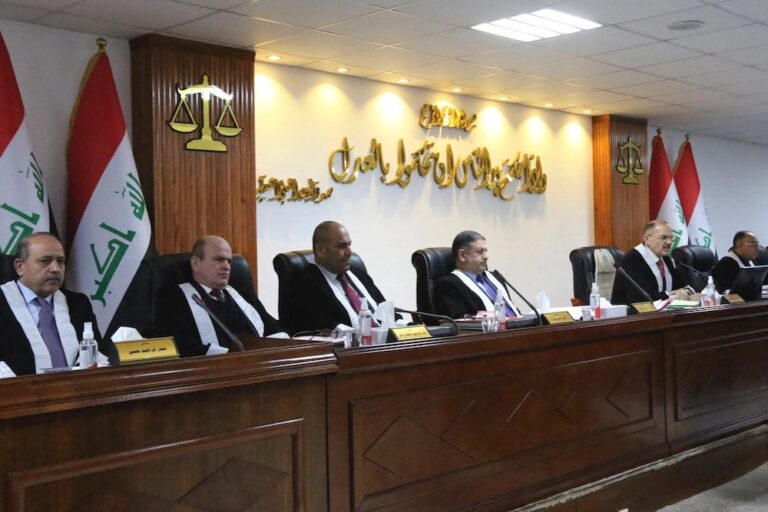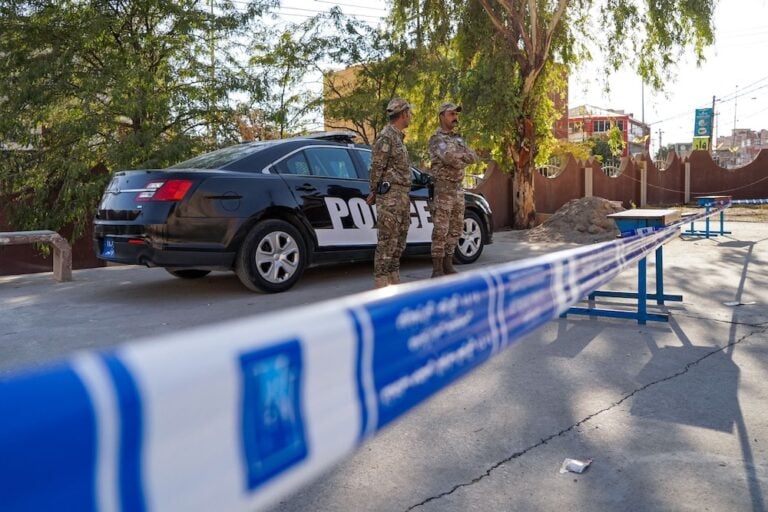(RSF/IFEX) – On 23 July 2002, RSF protested the Iraqi authorities’ 10-day ban on Al-Jazeera television journalist Diar al-Umari, apparently because the regime did not appreciate his reporting style. “After Saudi Arabia, Bahrain, Egypt, Kuwait, Morocco and Mauritania, it is now Iraq’s turn to censor Al-Jazeera because it no longer appreciates [the station’s] frankness,” RSF […]
(RSF/IFEX) – On 23 July 2002, RSF protested the Iraqi authorities’ 10-day ban on Al-Jazeera television journalist Diar al-Umari, apparently because the regime did not appreciate his reporting style.
“After Saudi Arabia, Bahrain, Egypt, Kuwait, Morocco and Mauritania, it is now Iraq’s turn to censor Al-Jazeera because it no longer appreciates [the station’s] frankness,” RSF Secretary-General Robert Ménard said in a letter to Iraqi Interior Minister Saad Mohammed Al Ajmi. “We await your explanation for this arbitrary step and ask that you cancel the ban on al-Umari at once,” added Ménard.
The Qatari-based satellite television station said Iraq had barred the journalist from working for 10 days, as of 20 July, “as a punishment for certain words in his dispatches, which the Information Ministry has deemed harmful to Iraq.” These included the reporter’s use of the term “ruling party” instead of “Arab Socialist Party” to describe the Baath Party. Al-Jazeera editor-in-chief Ibrahim Hilal said the station “vigorously contested” the ministry’s suggestion that it had harmed Iraq in its reporting.
The station has decided to close its Baghdad office during the 10-day ban. It will reopen depending on the regime’s future attitude towards Al-Jazeera and its correspondent. The station has not received a reply to a letter it addressed to the Information Ministry seeking an explanation for the ban.
On 10 May, the authorities in Bahrain prevented Al-Jazeera from covering local elections in the country (see IFEX alert of 13 May 2002).


